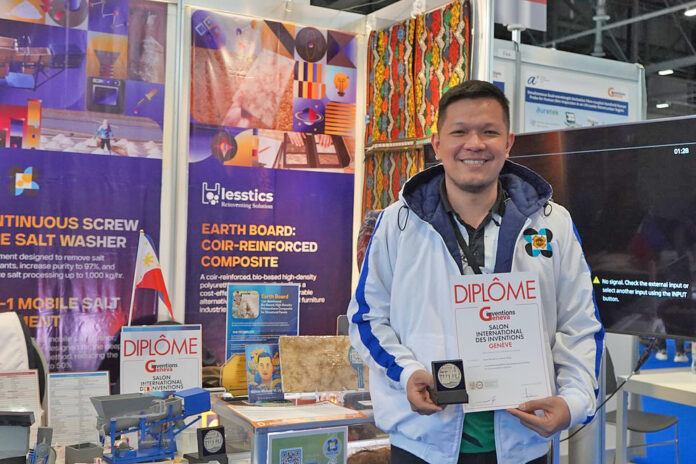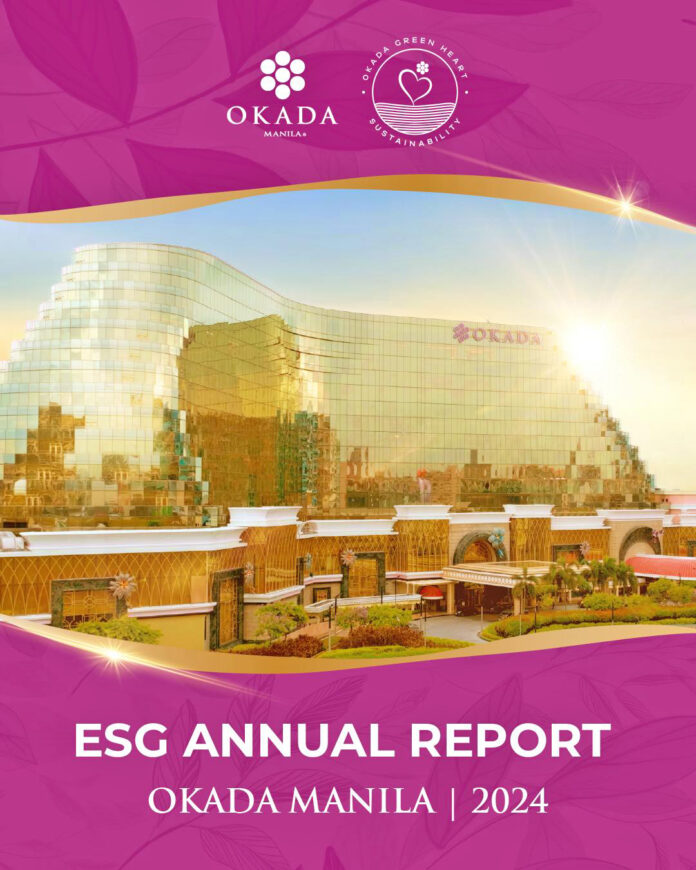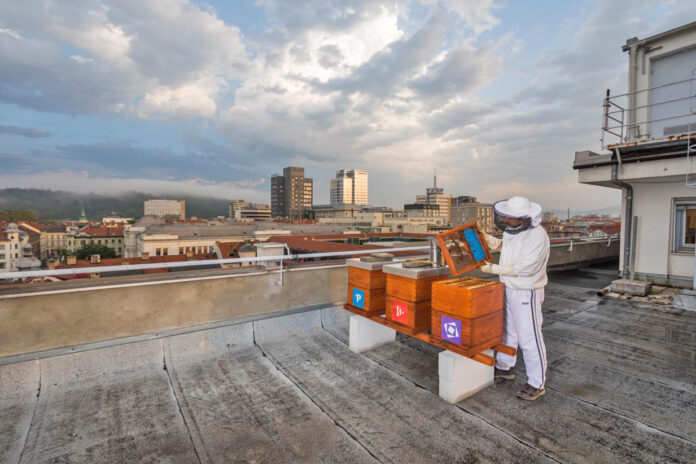The Philippines is home to 347 million coconut trees and yields an average of 14 million tons of coconut fruits a year.
Aside from its succulent meat and refreshing juice, the coconut fruit also has fibrous husks, which are often converted as geotextile and used in creating bags, rags, ropes,and other products.
Consequently, tons of fibrous coconut husks are improperly disposed of or burned in fields.
Kenno Michael Uy, the founder and chief executive of Lessics Inc., recalled during a recent episode of Pa-Siyensya Na podcast that these waste coconut husks can also be a potential source of vector-borne risks.
Uy saw this as an opportunity to develop the coir-reinforced bio-based high-density polyurethane composite, or the Earth Board. This technology won the Silver Award at the 50th International Exhibition of Inventions Geneva (IEIG).
Earth Board is made of fibers of waste coconut husks. Due to its bio-based composition, it emits fewer volatile organic compounds. This significantly contributes to reduced air pollution and associated health risks in working environments.
The plant-based binder formula that is infused in the Earth Board has high bonding strength, offering an improved structural strength. It also has excellent insulation and moisture resistance properties. which guarantee long-lasting performance even in humid environments.

With these features, the Earth Board is viable for various applications. It is also a suitable alternative to plywood and synthetic boards, commonly used in the construction and furniture industries.
“The technology has been successfully developed and tested, proving its strength, durability and eco-friendly benefits through various performance and safety assessments,” Uy said.
A deeper purpose
His purpose is largely anchored on the mission of Lesstics, his very own startup company. which puts sustainability at the core of its advocacy. Uy has previously created products such as the No-Rinse Hand Wash Formula made from coconut oil, and Eco-Roofing Tiles made from single-use plastic.
“I am motivated to innovate by the desire to make a tangible, positive impact on both the people and the planet,” Uy said.
He later saw the potential of the country’s waste materials, or coconut husks in particular. In efforts to reduce agricultural waste pollution, he collaborated with Amierson Tilendo and other experts to invent the Earth Board.
A hopeful outlook
Growing up, Uy has witnessed the challenges that coconut farmers faced. With a value-adding product like Earth Board, he wants to usher in more livelihood opportunities and additional income sources for coconut farmers, ultimately contributing to a circular local economy. To actualize his vision, Uy pushed for the commercialization of the technology.
Through one of DOST-TAPI’s Programs, particularly the Expanded Venture Financing Program, Lesstics received seed funding for the market launch of the Earth Board.
Uy said Lesstics now focuses on scaling production to meet market demands while ensuring cost efficiency.
“We are actively seeking funding through investors, grants and competitions to further expand production and distribution. Additionally, we are working on establishing supply chains and distribution networks both locally and internationally to bring our sustainable products to a broader audience,” Uy said.
This is how Lesstics is shaping the future of sustainable technologies. Department of Science and Technology News









